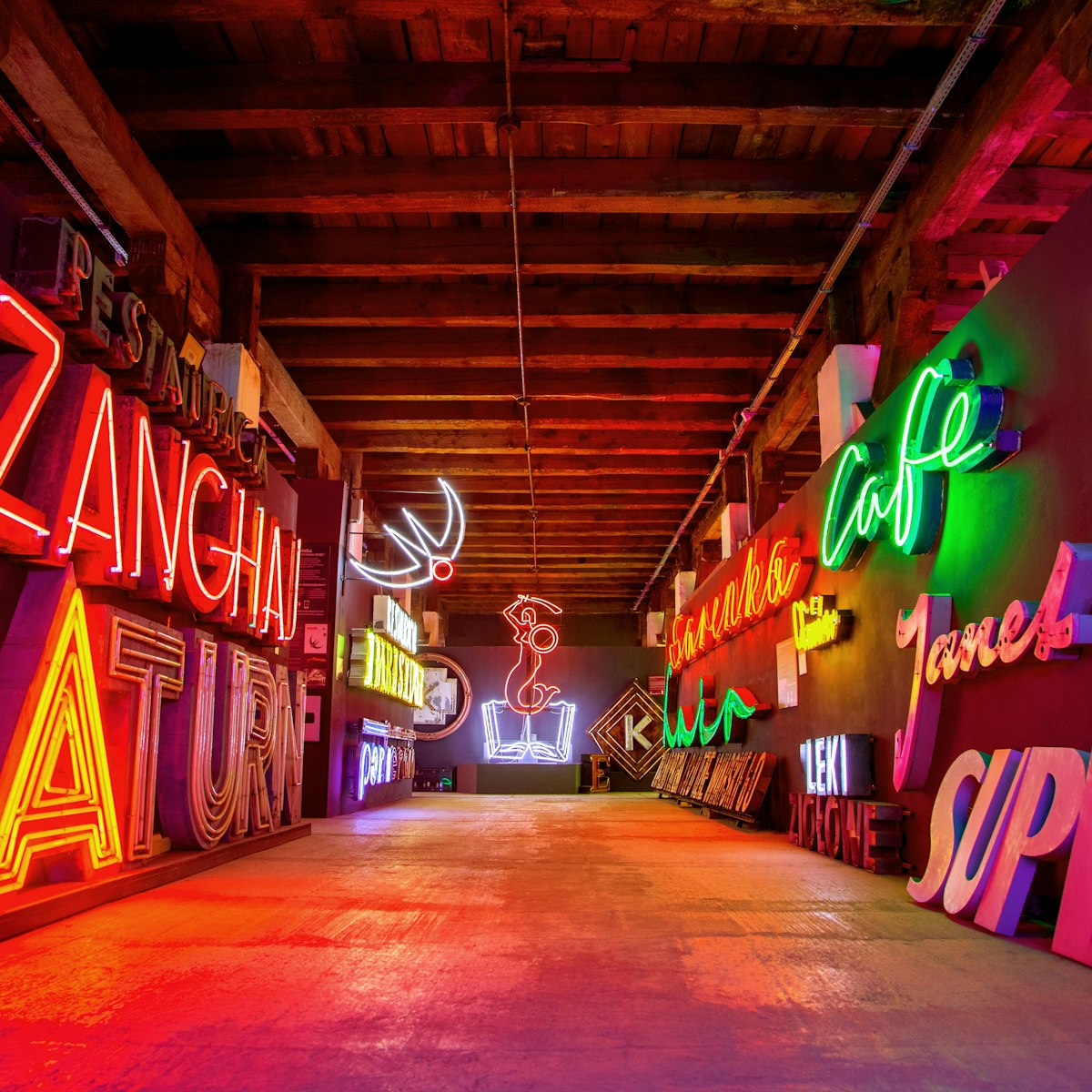Founded in 1806, Warsaw's main Jewish Cemetery covering 33.4 hectares contains more than 150,000 tombstones, the largest and most beautiful collection of its kind in Europe. Incredibly it suffered little during WWII. A notice near the entrance lists the graves of many eminent Polish Jews, including Ludwik Zamenhof, creator of the international artificial language Esperanto. Men should cover their heads with a hat or a cap while in the cemetery.
The tomb of Ber Sonnenberg (1764–1822) is one of Europe’s finest funerary monuments; take the first paved path on the left beyond the ticket office and when you arrive at a junction on your right, look left: it’s the roofed structure over by the wall.
Scattered across the cemetery and marked by black poles tipped with orange are 24 tombstones designed by noted sculptor Abraham Ostrzega (1889–1942), who died in Treblinka concentration camp.
Look out also for the collective graves, in particular the incredibly moving Monument to the Children of the Ghetto, decorated with a handful of photographs of the some one million children who perished in the Holocaust; it's found to the right of the cemetery entrance besides a raised mound planted with silver birch trees. Nearby is a bronze statue of Dr Janusz Korczak, director of the Jewish orphanage in Warsaw who stayed with his charges in the ghetto, despite being offered sanctuary, and accompanied them to Treblinka.
A database of all who are buried here and at other Jewish cemeteries in Poland can be found at www.cemetery.jewish.org.pl.







